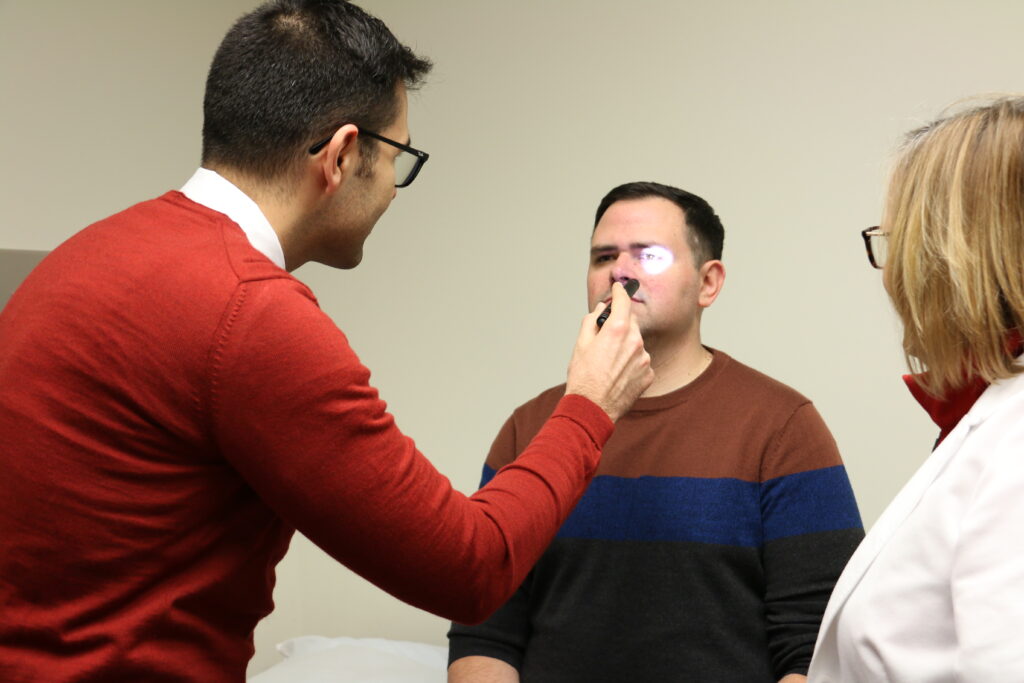The Washington University Tuberous Sclerosis Center is recognized by the Tuberous Sclerosis Complex Alliance as one of only 13 TSC Centers of Excellence across the globe and the only in Missouri. Its multispecialty team is equipped to provide the highest level of comprehensive, medical care for children and adults with tuberous sclerosis complex while conducting cutting-edge research to better understand and develop new treatments for the disease.
Tuberous sclerosis complex (TSC) is a genetic disease that involves tumors in multiple organs throughout the body and can present with a variety of symptoms, including severe neurological manifestations — epilepsy, intellectual disability, autism and others.
In 2022, Fábio A. Nascimento, MD, an assistant professor of Neurology at Washington University School of Medicine in St. Louis, joined the team and helped to expand the Adult TSC clinic. This expansion, led by Nascimento and Nurse Coordinator Patty Schaefer, addressed a main deficiency in TSC care across the country — a lack of transition assistance and adult care for patients who age out of the pediatric clinic as adult TSC specialists are not available in many areas.
Patient care at the Washington University Tuberous Sclerosis Center — in both pediatric and adult clinics — involves coordinated, integrated care across multiple specialties, including neurology, neurosurgery, nephrology pulmonology, cardiology, dermatology, psychiatry, oncology and genetics, to address all of the organs affected by TSC.
On top of well-rounded clinical care, the Tuberous Sclerosis Center is heavily involved in basic laboratory research, clinical research and drug trials. The center’s basic science research uses preclinical TSC models to identify and understand the biological mechanisms in TSC and develop novel, targeted treatments.
Over a decade ago, basic research with preclinical TSC models provided initial evidence for the efficacy of a drug treatment (a mechanistic target of rapamycin [mTOR] inhibitor) for epilepsy in TSC, ultimately leading to clinical trials and FDA approval of that mTOR inhibitor for epilepsy in TSC. More recent clinical trials focus on early treatment — before the onset of seizures — in hopes of preventing the development of epilepsy and neurodevelopmental disabilities.
Moving forward, both the pediatric clinic, led by Michael Wong, MD, PhD, and Clinical Nurse Coordinator Ashley Fasciola, and adult clinic have a mission to continue providing state-of-the-art care for all children and adults with TSC in St. Louis and the surrounding region to ensure they live their fullest lives. The Tuberous Sclerosis Center’s research goals are to continue making new discoveries on the basic science level and supporting clinical trials, leading to new, more effective treatments for a variety of manifestations of TSC, including the possible prevention of TSC-related tumors and symptoms with early treatment.
